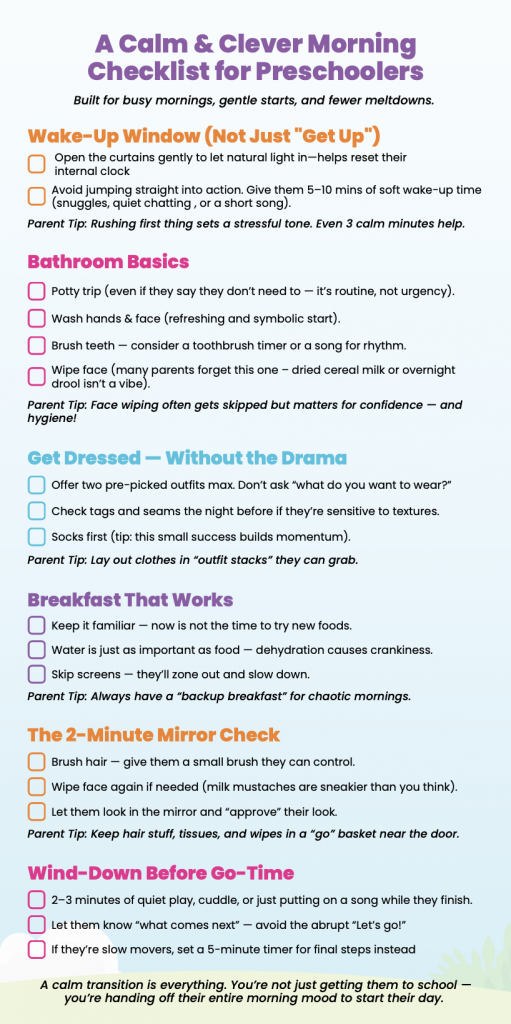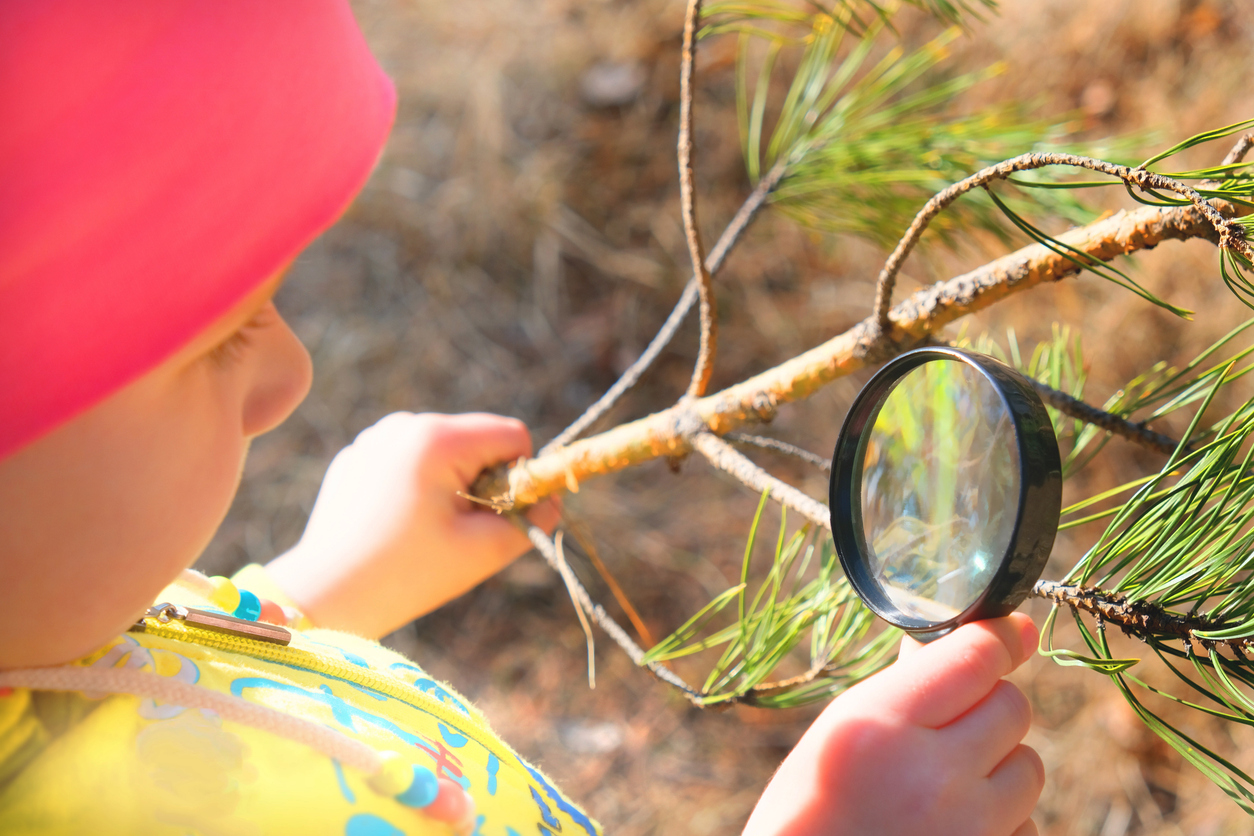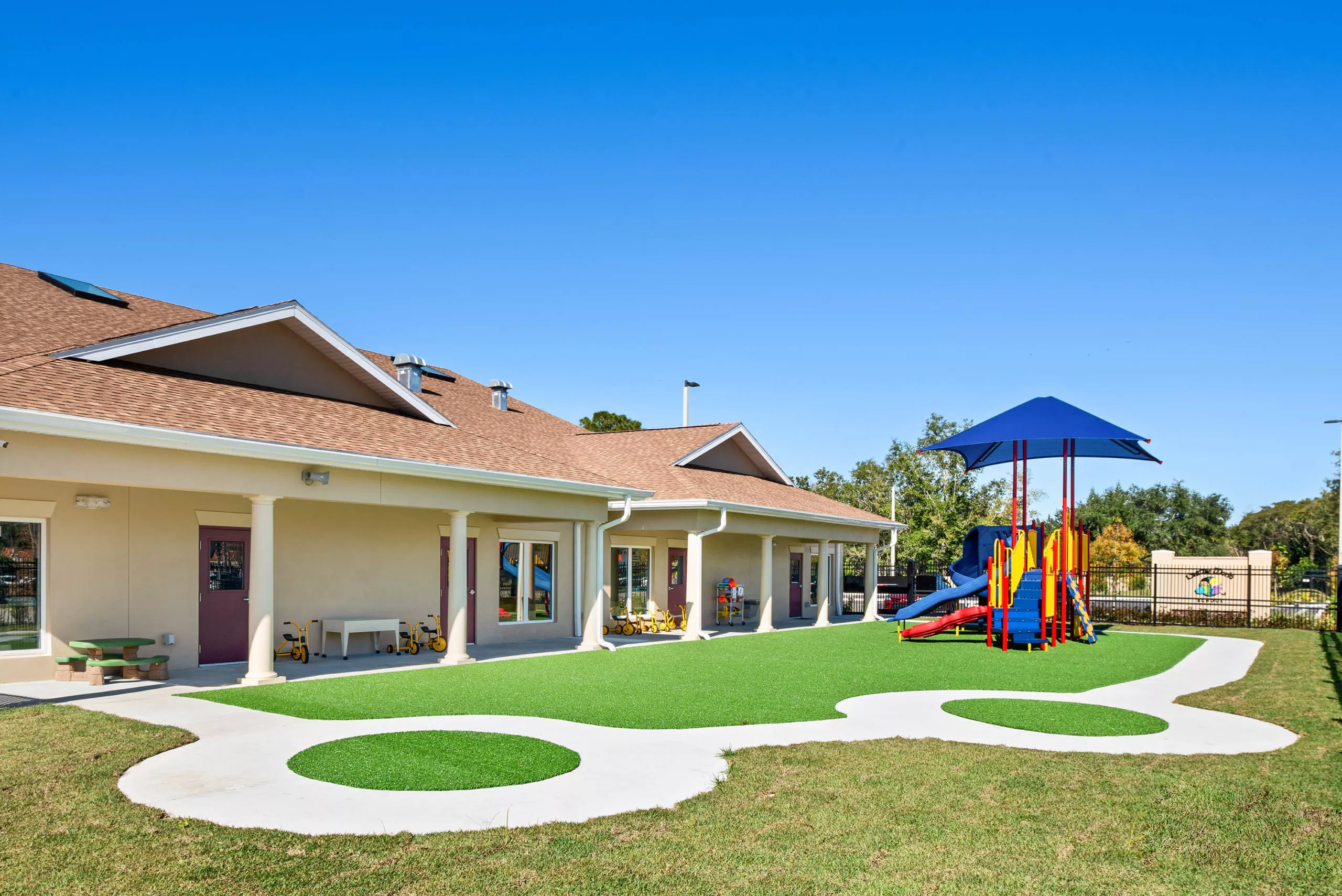
Parenting Tips for Preschoolers
Creative world school Jun 18, 2025
Parenting preschoolers is like being part scientist, part storyteller, and part snack-fetching superhero! Whether you’re navigating morning meltdowns or celebrating tiny triumphs, we’ve got your back. Let’s explore ways to nurture curious minds, build confidence, and sprinkle a little magic into everyday moments.
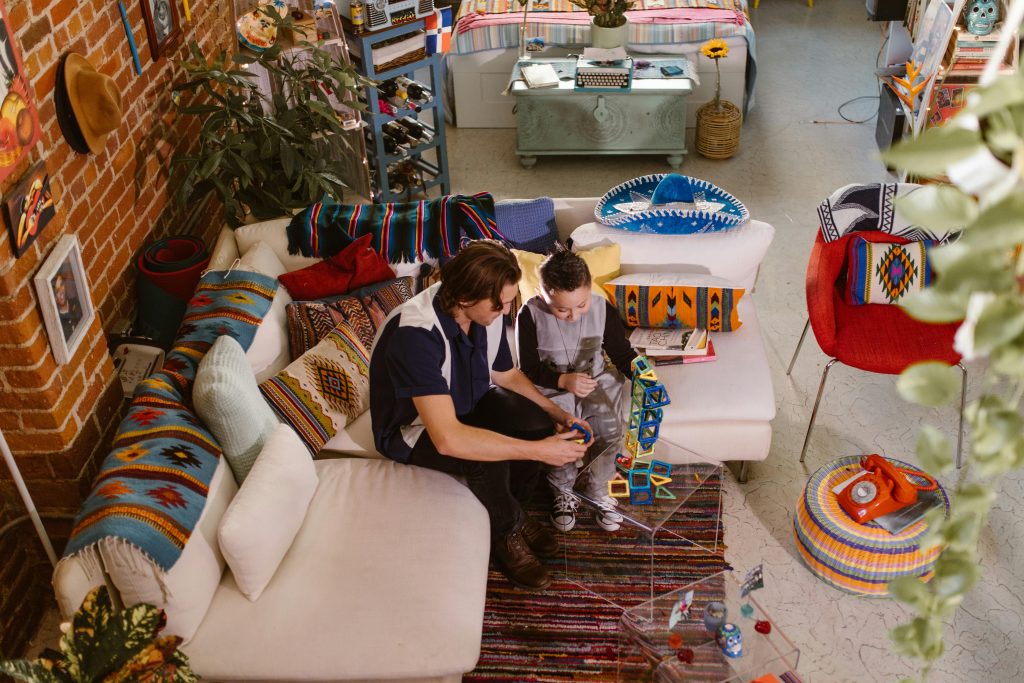
Routines: The Secret Sauce for Happy Days
Imagine if every day felt like a cozy, predictable storybook for you and your little one! A consistent routine for preschoolers helps kids feel secure and ready to explore. Start small with a “sunshine stretch” after breakfast or a silly “sock race” before shoes go on. Need morning inspiration? Our guide to preschool morning routines turns chaos into calm with songs, visual schedules, and mini-jobs like “plant waterer.” Consistency doesn’t mean rigidity. Think of routines as a flexible rhythm that adapts to your family’s unique groove.
Screen Time Smarts: Finding the Balance
Screens are everywhere…but how much is too much for little kids? The American Academy of Child & Adolescent Psychiatry (AACAP) recommends no screen time at all for children under 18 months, except for video chatting. For kids ages 2 to 5, they suggest limiting screen time to one hour a day of high-quality, age-appropriate programming. So swap passive scrolling for interactive fun: try a family dance party or “digital scavenger hunt” (find something red, spot a triangle!).
For more tips, check out our screen time recommendations for toddlers, which include creative alternatives like audiobooks and DIY puppet shows. Remember, the goal isn’t perfection. It’s about mindful moments that spark joy and learning.
“I Did It Myself!” Raising Little Problem-Solvers
Nothing beats the pride in your child’s eyes when they zip their coat solo! Encouraging independence starts with tiny tasks: pouring cereal (expect spills!), matching socks, or choosing storytime books. Our blog on raising self-reliant kids is packed with science-backed ideas your child will love. Don’t forget to celebrate every “I did it!” moment. Those small wins build big confidence!
Playtime = Brain-Building Time
Preschoolers learn best through play. But there’s no need to run out to buy special toys or flashcards. Turn grocery trips into color hunts (“Find three green veggies!”) or bathtime into a sink-or-float science lesson about buoyancy. Check out our blog on quick hacks for engaged learning, and explore Scholastic Parents for hundreds of everyday activities for 3- to 5-year-olds, from early reading and math to science experiments and outdoor play.
Don’t forget the power of independent play. This Zero to Three guide shows how to stretch solo playtime, step by step.
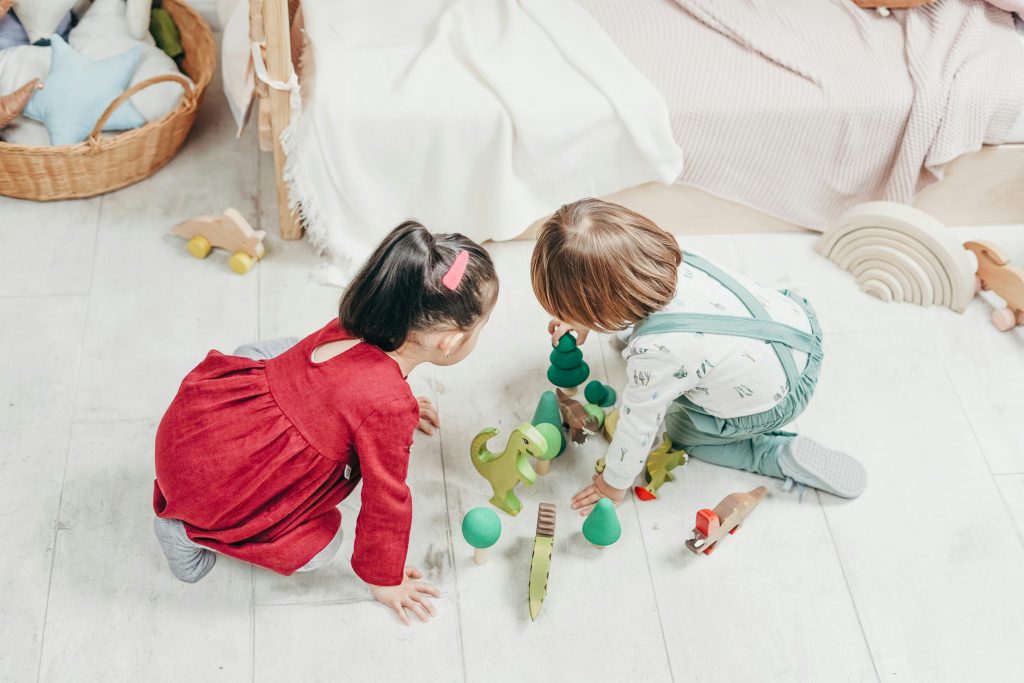
Taming Tantrums with Empathy (and Science!)
When emotions run high, it’s easy to feel stuck. But as Daniel Siegel writes in The Whole-Brain Child, naming feelings helps kids process big emotions. For step-by-step scripts, How to Talk So Little Kids Will Listen is a total game-changer. Try creating a “calm corner” with soft pillows and sensory tools. It’s a cozy spot to reset. And remember, tantrums aren’t personal. They’re your child’s way of saying, “I need help!”
Nutrition Wins: Fueling Tiny Explorers
Got a picky eater? You’re not alone! Turn meals into adventures with “rainbow plates” (aim for three colors!) or “build-your-own” taco nights. The CDC’s developmental milestones guide reminds us that growth spurts affect appetites, so it’s totally normal for preferences to change daily. Involve kids in meal prep: washing veggies, stirring batter, or setting the table. For busy families, our blog on staying organized as a parent will share time-saving kitchen hacks.
Sleep Strategies for Sweet Dreams
Bedtime battles? You’ve got this! Try a “three-book limit” or say goodnight in a silly robot voice to make things fun. Little routines like these help kids feel safe and ready for sleep. In fact, the Harvard Center on the Developing Child says back-and-forth moments, like bedtime chats and cuddles, build strong connections. Talk about the best and trickiest parts of the day, then tuck them in tight. Most preschoolers do best with 10 to 13 hours of sleep, so keep naps steady but stay flexible.
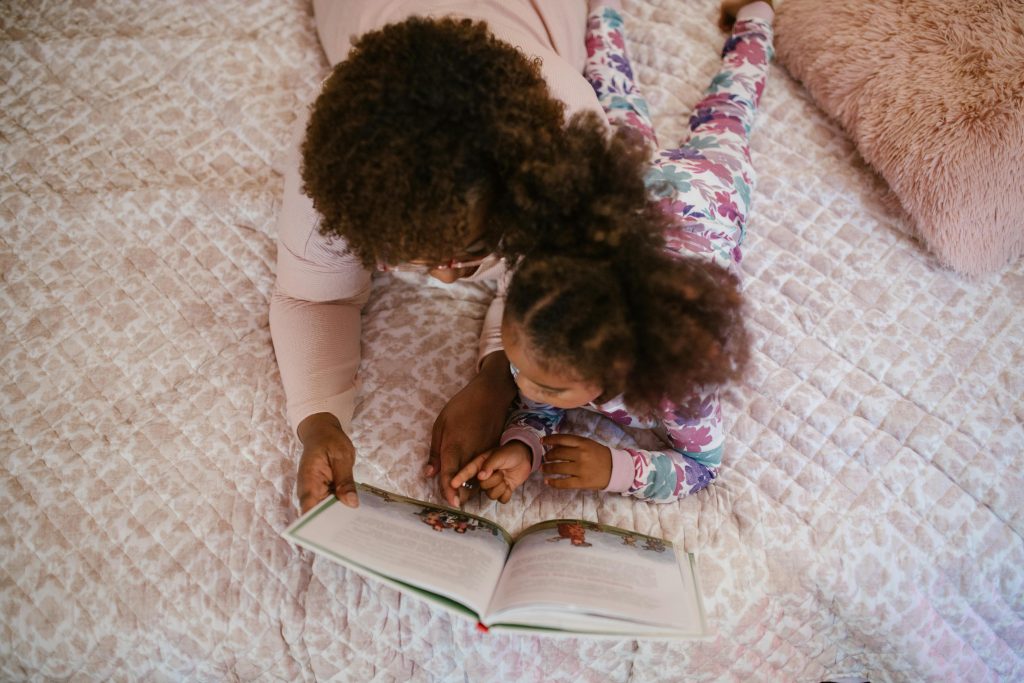
Learning Through Love: Social-Emotional Growth
Preschool friendships are equal parts adorable and complicated! Role-play sharing scenarios with stuffed animals or practice “feelings faces” in the mirror. John Gottman’s Raising an Emotionally Intelligent Child teaches “emotion coaching.” This means helping kids label feelings and problem-solve. Praise effort over results (“You worked so hard on that puzzle!”) to build resilience.
And don’t forget to model kindness yourself. Kids are always watching and learning from the everyday moments, like when you thank the cashier or help a neighbor carry groceries. As educator Lael Stone puts it, “Children can’t be what they don’t see.” If you want to learn more about raising emotionally aware kids, her TED Talk is a thoughtful and inspiring place to start.
You’ve Got This, and We’ve Got You!
Parenting isn’t about perfection. It’s about connection. Celebrate small wins (yes, even surviving a Target-run without a meltdown!). Remember: self-care isn’t selfish. Keep a “joy journal” to jot down funny quotes or proud moments. It’s a treasure trove of memories on tough days.
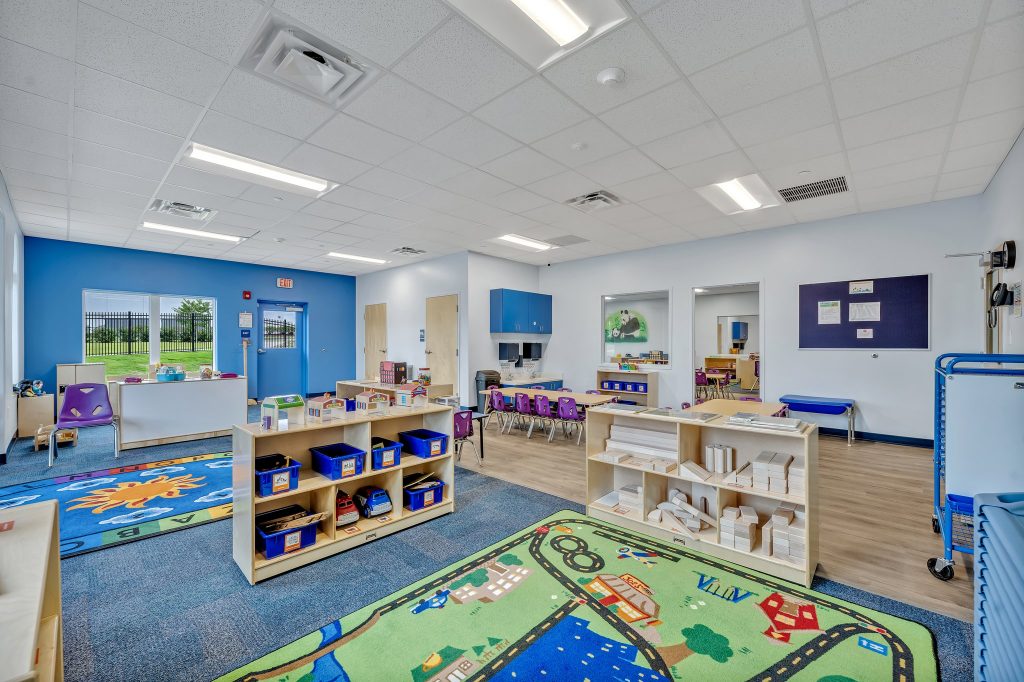
At Creative World School, we collaborate with parents like you to support every child’s unique learning journey and spark a lifelong love of discovery. Our inquiry-based programs nurture curious thinkers, problem-solvers, and kind friends. Tour a preschool near you and let’s build a brighter future together
